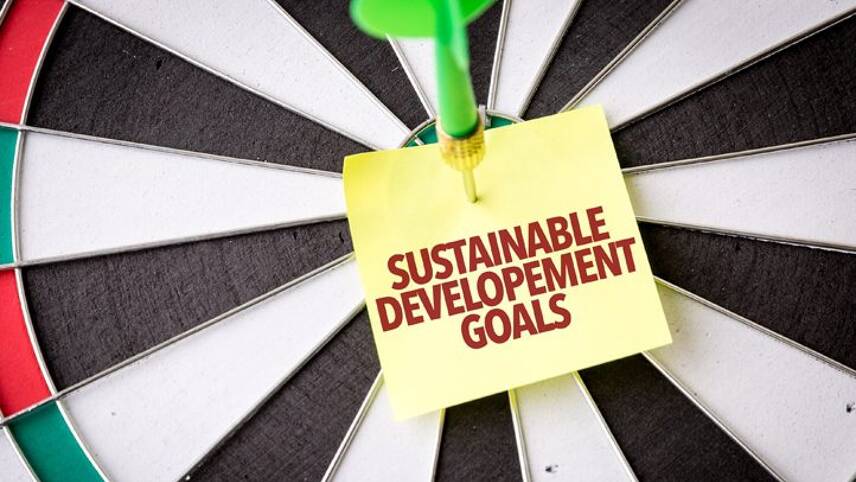Register for free and continue reading
Join our growing army of changemakers and get unlimited access to our premium content

Our business is committed to using technology for good and supporting the power of engineering to help build a cleaner future.
The challenge then is to find the projects and partnerships which match those attributes to meeting a clear and widespread social need identified by acknowledged specialists. This means that a business can apply substantial resources in an efficient way to achieve a set goal, complementary to other stakeholder activity.
One of the best ways of aligning business activity is to consider the UN’s Sustainable Development Goals, as an agreed benchmark for the most important global climate and development objectives which businesses can help to achieve. Indeed, meeting the goals may not be possible without considerable backing from business.
Alongside this wider picture, business must consider its own responsible business objectives of making a positive impact on wider society by using innovation to create opportunities for educational achievement; economic growth; technology advancement; and a healthier environment. Attaching to wide-ranging global goals may not be sustainable without reference back to the business’s core activities and strengths, and business leaders need to see the relevance of programmes to the direction in which their organisations are growing.
Such thinking lay behind our Lighting Up Lives project, being delivered with development specialists ClimateCare, to benefit 1.2 million people in Kenya by 2020. The partnership will bring clean solar technology to off-grid communities.
A lack of grid electricity limits opportunities to study and work, poses health risks and harms the environment as people look to use portable fossil fuels such as kerosene. Lighting up Lives makes night light available in remote communities – genuinely bringing power to the people, and providing up to four hours more light each evening to villages across the area.
To take just one example, this means that children like Franklin Nzeki can read and study after dark. Franklin, a 14-year-old pupil at Kasooni School in Kalawa, said: “I finish all my homework now. Before I could not do it at home when it was dark. I know my parents are much happier now, and so am I.” He now harbours a dream of becoming an engineer one day.
Education improves in the villages as children like Franklin can study, read and play after dark. Women enjoy greater opportunities to work and learn. Meanwhile, homes are healthier and safer – and incomes improve thanks to ending a reliance on the expensive, inefficient and polluting kerosene lamps. Around 8% of the kerosene ends up in the atmosphere as black carbon, a damaging form of particulate pollution and (particularly when exposure happens indoors), one of the biggest causes of premature death in Africa.
Significantly, the distribution, installation and maintenance of the household solar kits also brings new opportunities for entrepreneurship. People feel empowered to improve their own lives in a sustainable and innovative way, using the extra light for a range of working activities.
To illustrate this transformational impact, it is always powerful to look to create impactful ways of letting stakeholders in on the project. In the case of Lighting Up Lives, an art installation at the Hay Festival of Literature and the Arts, “The Night Time Sun” used solar lamps in a spherical sculpture, designed to cast its light over festival-goers as the sun sets.
Then throughout the Hay Festival, interactive sessions were hosted in a specially created Story Nook tent, allowing families to connect with children in Kenya and to learn more about the transformational power of solar energy.
The purpose was to make responsible business relevant to everyone who visited and enjoyed the Festival. By sharing our skills, our technology, our people and our passions we hope more businesses and other organisations will get involved in other projects with positive impacts. Global development issues such as energy access, poverty and climate change can feel very abstract and disconnected from people’s everyday lives, unless some form of relatable “gateway” is created to their experience.
Hay Festival and other events closer to our operational centres provide a powerful stage on which to create awareness, but also to influence attitudes and behaviour – within the organisation as well as outside.
Returning to the Sustainable Development Goals, then, taking an integrated approach to tackling climate change and sustainable development challenges is imperative. And it takes partnerships with specialist organisations to identify the right programmes to achieve this, and ensure that proposed activity is cost-effective and readily upscaleable to benefit a wide population. Being able to measure the direct impacts is also fundamental.
Ultimately, businesses also have to be prepared to review their approach to responsible business to align with global goals such as the Sustainable Development Goals – but only if it makes sense to their core business strengths, capacity and values.



Please login or Register to leave a comment.